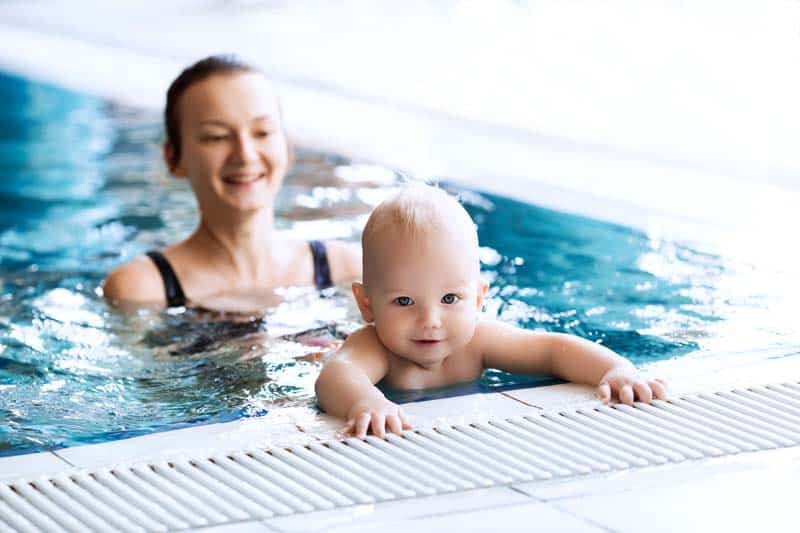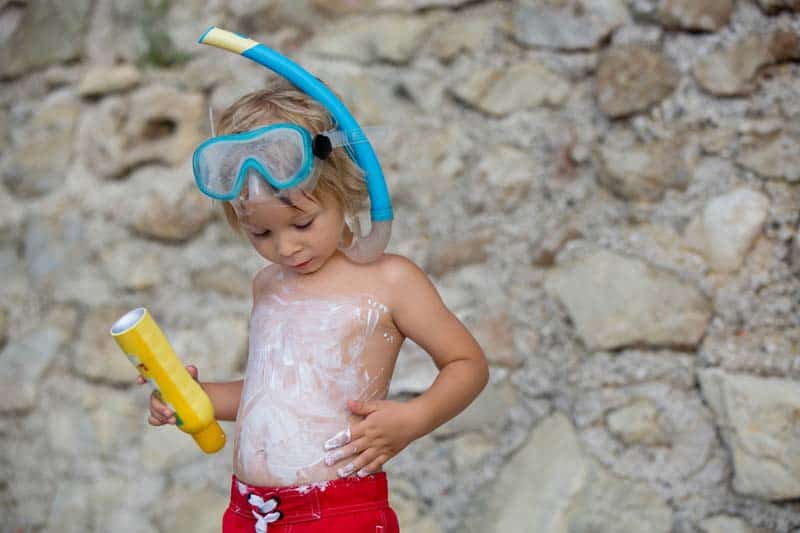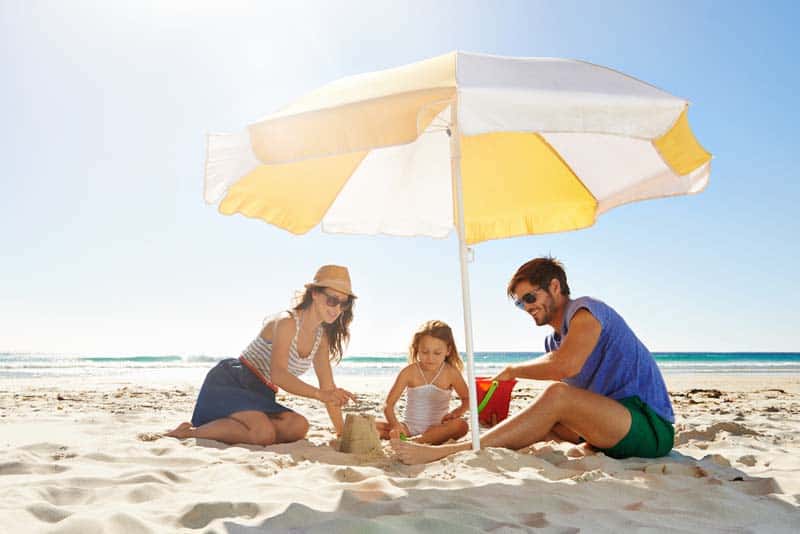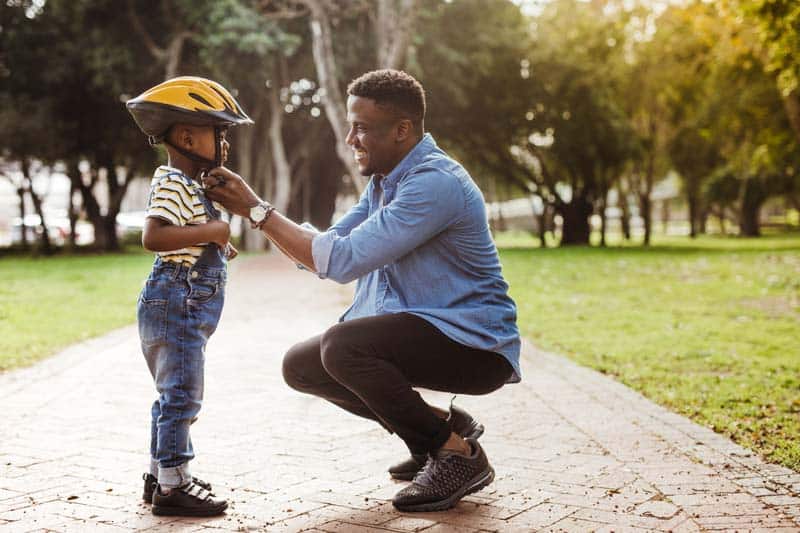Ask the Experts: Pro tips for a safe and FUN summer in Tampa Bay!
Summer means sunshine and pool time; beach days and barbecues—a time to relax, kick back and make memories. But travel and visitors can create distractions and confusion, resulting in injuries or illness.
We talked with Dr. Christina Canody, BayCare Pediatric Service Line Medical Director and Michelle Sterling, BayCare Kids Wellness and Safety Specialist and Safe Kids Greater Tampa Coordinator, about the best ways to keep your children safe this summer. Here are their essential tips for a safe summer.
SAFETY AROUND WATER
Water is the main allure of sun-soaked summer days, but it’s also a dangerous lure for curious toddlers or anyone who cannot swim. Follow these tips to ensure happy and safe pool and beach time.
- Drowning is quick and silent, so designate a water watcher whose only job is to watch the children in the pool (no long chats with other adults; no phone scrolling).
- Install effective pool gates, fences and alarms on your pool and home, and DON’T turn off that annoying chime of the door alarm because it can alert you if your curious toddler wanders outside.
- Keep toys and floats out of pool when not in use so young children aren’t tempted to try and get to them.
- If your child is missing, immediately check the pool and other nearby bodies of water. Toddlers are very attracted to water and can drown in very small amounts of it—even in a few inches of rain water left in the bottom of a blow-up pool.
- Not all flotation devices keep a child from drowning, even if they are marketed to do so. Around open water, opt for snug-fitting U.S. Coastguard-approved life jackets.
- Remind your children to never swim alone (even those who are experienced swimmers) and always have an adult or a buddy with them when at the water.
- A day at the beach can quickly become spoiled by lightning, jellyfish or riptides. Pay attention to warnings, flags and lifeguards, and if you hear thunder, take cover.
- Start swimming lessons for your children as early as possible—even from the time a baby starts crawling. Parents can also look into CPR training.

SAFETY ON PLANES, BIKES AND IN AUTOMOBILES
Summer often means travel, whether it’s a road or plane trip, or whether you are renting a car at your destination. Wherever you go, remember that if an accident occurs, a safely restrained child has a much better chance of avoiding injury.
- When installing a car seat, use either the seatbelt or the latch system, not both, because that can affect the integrity of the system. Once you’ve secured it in the vehicle, give the belt path a tug to ensure it doesn’t move more than an inch or so. Make sure you’ve installed it correctly by consulting a video tutorial or a child passenger safety technician like the team at BayCare Kids Wellness and Safety Center.
- Keep kids rear facing until they are 2 years old. The child should switch from a booster to the regular car seat only when their legs make a 90-degree angle when they are sitting with their feet planted on the floor, and when the seatbelt lies across their collarbone and hips.
- NEVER leave a child or pet in the car. In Florida, car temperatures can heat up to a level 20 degrees higher than the environment outside, and this can happen within minutes. It’s hard to imagine forgetting a baby in the backseat, but it happens more often than you’d think, and it can happen to anybody, especially in the midst of a disrupted routine. Tip: when strapping in baby, place something in the back seat that you cannot leave the car without, such as your purse, briefcase or even your left shoe!
- Remind your children (and maybe visiting grandparents) that in Florida, the law states that anyone under 16 must wear a helmet when they ride a bicycle.
- Flying this summer? Consider taking along an approved child safety restraint system (CRS) or harness to use in the flight. Look for a tag that says “This restraint is approved for use in motor vehicles and aircraft” on it. Otherwise, you may have to check the car seat in.
SAFETY IN THE GREAT OUTDOORS
What’s awesome about Florida? 365 days of sunshine! What’s not so awesome? Sunburns, heat exhaustion and mosquitoes!
- Apply sunblock 15-20 mins before you go out in the sun.
- Children’s bodies warm up quicker than adults’ and they don’t sweat as much, so bring them inside to air-conditioning often and give them plenty of water breaks. The American Academy of Pediatrics suggests 5 ounces of water (or 10 gulps) for an 88-pound child every 20 minutes, and 9 ounces (20 gulps) for a 130-pound adolescent during physical activity.
- If they do get sunburned, apply aloe and lotion for sunburn and give them Benadryl or an antihistamine for itching. If they have swelling or pain, however, seek medical attention.
- For babies from 6 months to 1 year, use a brand of insect repellent that has less than 10 percent DEET. For babies under 6 months, spray their clothes rather than their skin, and spray the underside of their stroller. You can also have your kids wear “bug bands” or citronella bracelets.
- If you’re hiking or walking in tall grass, check children’s skin at bath time for strange bites or even ticks. If you do see a tick on their skin, safely remove it. If the tick is engorged, seek medical attention.

VACCINES AND YOUR CHILD'S HEALTH
Although this summer’s strain of COVID is more contagious, it is not more severe. In fact, pediatricians are seeing more and unusually high numbers of patients suffering from the flu, RSV and Human Rhino/Enterovirus this summer. As well as handwashing, masking and avoiding high-touch surfaces, here are some tips for a healthier summer:
- Keep up to date with all vaccines and boosters recommended by the Centers for Disease Control (CDC). COVID vaccines and boosters are recommended for children over 5, especially for children who will travel or attend summer school or camp.
- If your child tests positive for the flu, remember that they are contagious until after they have been fever-free for 24 hours. They have also probably been contagious for at least a day prior, so if you have other children at home, it’s a good idea to avoid camps, day care and crowded spaces to prevent spreading disease.
- If your child is ill, keep them hydrated and control their fever with Tylenol. If the fever doesn’t respond, or if the child is not eating, drinking, urinating or breathing properly, or if they have vomiting and diarrhea, take them to a doctor. Also, any baby under 6 months who is sick should be seen by their physician.
Pack these travel must-haves
- Thermometer
- Tylenol
- Benadryl
- Hydrocortisone cream 1% to apply on bites
- A 10-day supply of extra medication in case of travel delays
- A list of the generic names of your child’s medication as drugs may be sold under different names in different countries
- Vaccination records
GUN SAFETY AND KIDS
This summer, you may find yourself visiting friends or family that own a gun. Or maybe you own a gun and children who are unfamiliar with weapons are visiting your home. Either way—and at any time of the year—it’s important to keep basic gun safety laws at the front of mind.
- Never keep guns lying around on nightstands or in bedside drawers. Store them unloaded and secured with child-resistant locks in a locked container. Keep this container in a place children cannot see or reach, and do not store the ammunition with the weapon.
- If you are planning to use the gun and do not want to store it, keep it with you at all times.
- Speak to family members and the parents of your children’s friends about gun safety and about their practices and your expectations.
*Presented by BayCare | Originally published in the July 2022 issue of Tampa Bay Parenting Magazine.



